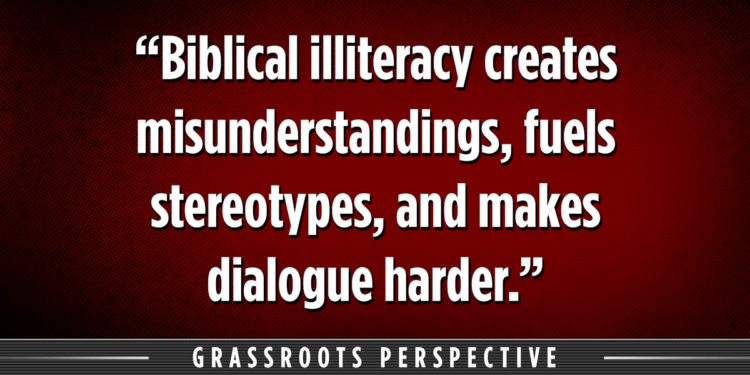College campuses are buzzing with debates, protests, and a rising tide of anti-Semitism. Many students do not know the biblical history behind Israel, or why the land, covenant, and people matter to this day. Biblical illiteracy creates misunderstandings, fuels stereotypes, and makes dialogue harder. This piece argues that understanding the Bible’s historical promises to Israel isn’t about declaring political positions; it’s about informed conversation, respectful citizenship, and recognizing how ancient texts still shape modern reality.
I’ve always believed that the Bible isn’t just an old book; it’s a stubborn, unyielding set of claims about history, land, and the future. When you squint at the story of Israel through that lens, a clear thread emerges: a people and a land tethered together by a promise that protesters, politicians, and pundits keep trying to untangle.
It starts with Abraham, the patriarch who receives more than a family tree. Almighty God tells him that his descendants will become a great nation, and that land will be theirs. It’s a covenant, not a suggestion: land, nationhood, blessing tied to obedience, consequences tied to disobedience. Fast-forward to 586 BC, when judgment comes in the form of conquest and exile. The land is no longer theirs in the way it once was, and the people endure a painful, centuries-long displacement.
Then something shifts dramatically in the modern era. May 1948 arrives with a headline the prophets of old might have inked themselves: Israel is back as a nation. The moment isn’t just political restoration; for many, it’s a biblical pivot point, an echo of that ancient promise finding a new stage on the world map. They point to prophecy as a guide, not a mere historical curiosity. One verse, Amos 9:14-15, is held up as a lens:
“I will bring again the captivity of my people of Israel, and they shall build the waste cities, and inhabit them; they shall plant vineyards, and drink the wine thereof; they shall also make gardens, and eat the fruit of them. And I will plant them upon their land, and they shall no more be pulled up out of their land which I have given them, saith the LORD thy God.”
The reading is straightforward for many believers. This is not a temporary rearrangement of borders but a divine proclamation of permanence. Israel, once scattered, will be reestablished, and the land will hold them in a way that cannot be undone by time, politics, or power struggles.
So where does that leave the present moment? For supporters, it’s both a cause for cautious optimism and a call to responsibility. It’s a reminder that some truths feel bigger than short-term wins or losses. It’s a prompt to pray for wisdom and peace, to acknowledge the gravity of a nation’s right to exist, and to engage with restraint rather than with the heat of every headline.
Of course, this view isn’t the only one in town. Israel, prophecy, and national identity sit at the crossroads of faith, history, and geopolitics, and people from different backgrounds will disagree about what to do next or how to interpret the scriptures. That disagreement, I’ll admit, is part of the conversation that keeps a nation’s story alive in the public square.
So I’ll keep reading Amos and the rest of the prophets, not as a political manual, but as a moral map — a reminder that some promises are stubborn, that history can hinge on the faith communities choose to harbor, and that the world, whether it likes it or not, will have to reckon with a land and a people tied together by a promise that, to many, feels unbreakable.















